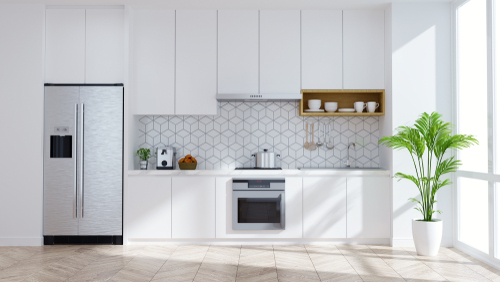The future of home appliances looks promising with the advancements in smart technology and energy efficiency. Smart technology allows appliances to communicate with each other and with the user, making them more intuitive and user-friendly. Smart home appliances can be controlled remotely, and their settings can be customized according to the user’s preferences. They can also monitor their own energy usage and provide insights into how to save energy and reduce costs. This feature is particularly useful in light of the growing concern about climate change and the need to reduce carbon emissions. Energy-efficient home appliances also play a crucial role in the future of home appliances, as they consume less energy than traditional appliances, reducing energy bills and helping the environment.
As technology advances, so do the appliances in our homes. We have come a long way from the days of manual washing machines and refrigerators that only had one temperature setting. With the rise of smart technology and energy efficiency, home appliances are becoming more intuitive and environmentally friendly than ever before.
Smart Technology
One of the most significant advancements in home appliances is the integration of smart technology. Smart technology allows for appliances to be controlled remotely, monitored for efficiency, and even learn our habits and preferences to make our lives easier. For example, smart refrigerators can keep track of food inventory and suggest recipes based on what’s inside. Smart thermostats can learn our temperature preferences and adjust accordingly, saving us money on energy bills.
Additionally, many smart appliances are equipped with voice control technology, making it easier for those with disabilities to use them. This is a significant step towards making homes more accessible and inclusive.
Energy Efficiency
Energy efficiency is also a critical factor in the future of home appliances. As the world becomes more conscious of our impact on the environment, it is essential that we make choices that reduce our carbon footprint. Energy-efficient appliances use less electricity, reducing the amount of greenhouse gases released into the atmosphere. This not only benefits the environment but also saves us money on our energy bills.
Many appliances now come with Energy Star ratings, which indicate that they meet or exceed energy efficiency guidelines set by the Environmental Protection Agency. Choosing appliances with higher Energy Star ratings can save households hundreds of dollars a year in energy costs.
The Benefits of Smart and Energy-Efficient Appliances
Investing in smart and energy-efficient appliances comes with several benefits. Firstly, they can save you money on your energy bills. For example, a smart thermostat can save you up to 10% on your heating and cooling bills each year. Secondly, they can improve the overall functionality of your home. Smart appliances can learn your preferences and adapt to your lifestyle, making your daily routine more efficient.
Lastly, investing in smart and energy-efficient appliances is a step towards a more sustainable future. By reducing our carbon footprint, we can make a positive impact on the environment and ensure a better world for future generations.
Conclusion
The future of home appliances is undoubtedly exciting, with smart technology and energy efficiency leading the way. Investing in these types of appliances not only benefits our daily lives but also has a positive impact on the environment. As technology continues to advance, we can expect even more innovative and sustainable home appliances to hit the market. When making choices for your home, consider the benefits of smart and energy-efficient appliances and make a conscious effort to reduce your carbon footprint.




